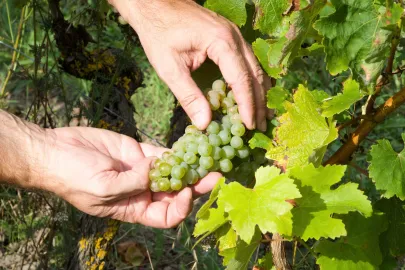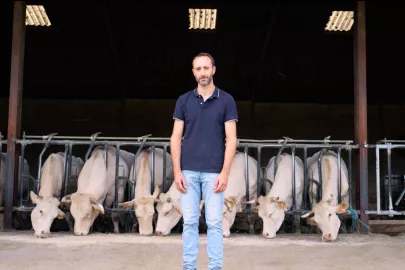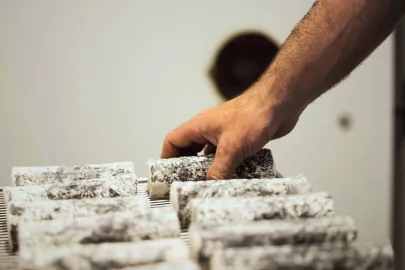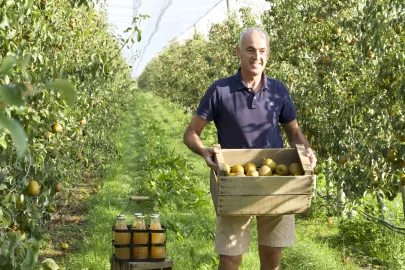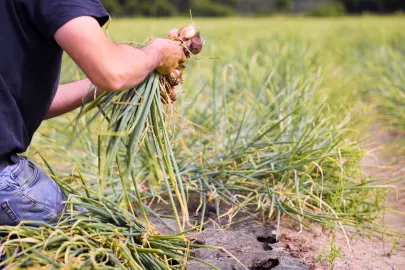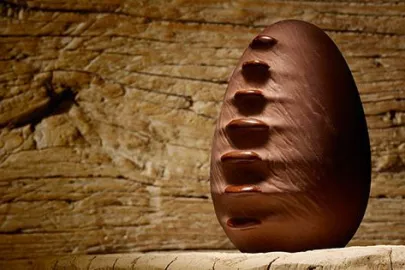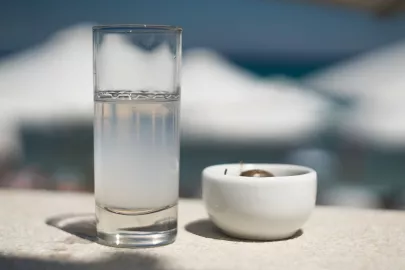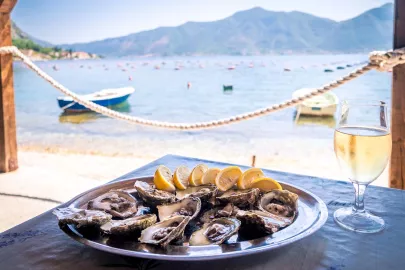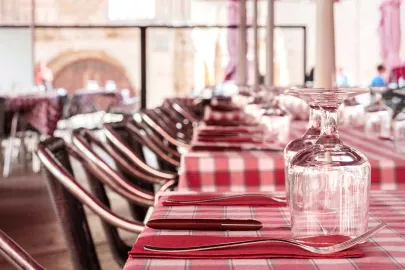Jacqueline Reig produces remarkable olive oils at her farm, Moulin des Auxelles, in Bouleternère, southwest of Montpellier. She also leads a group campaigning for Roussillon olive oil to be awarded Appellation d’Origine Contrôlée status.
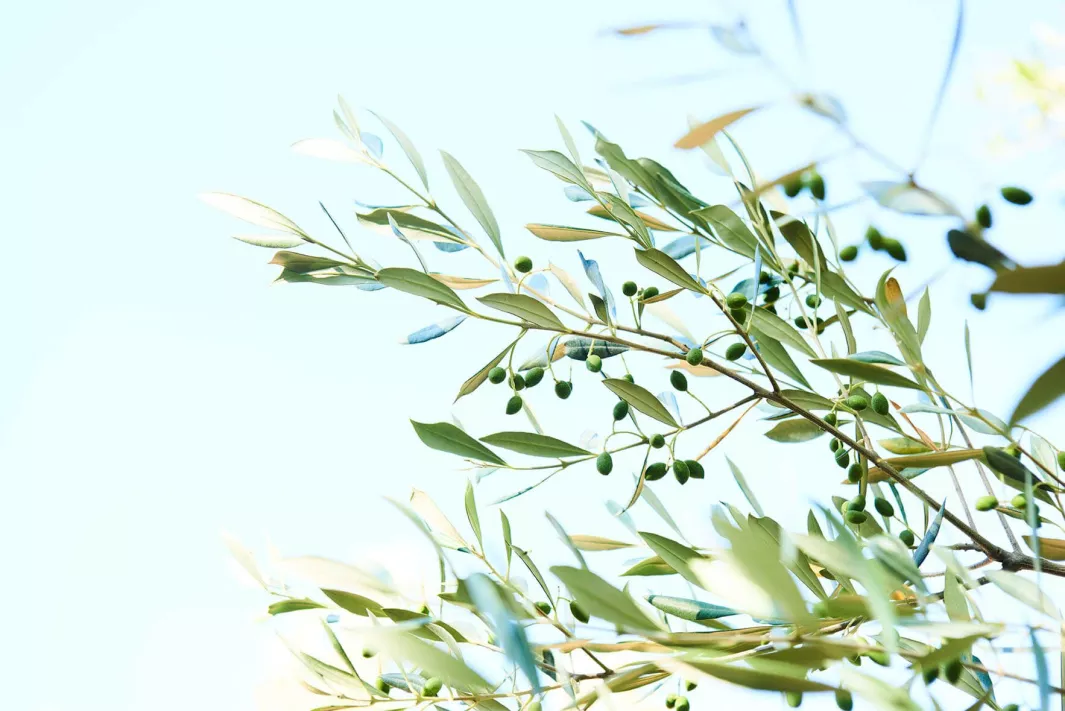
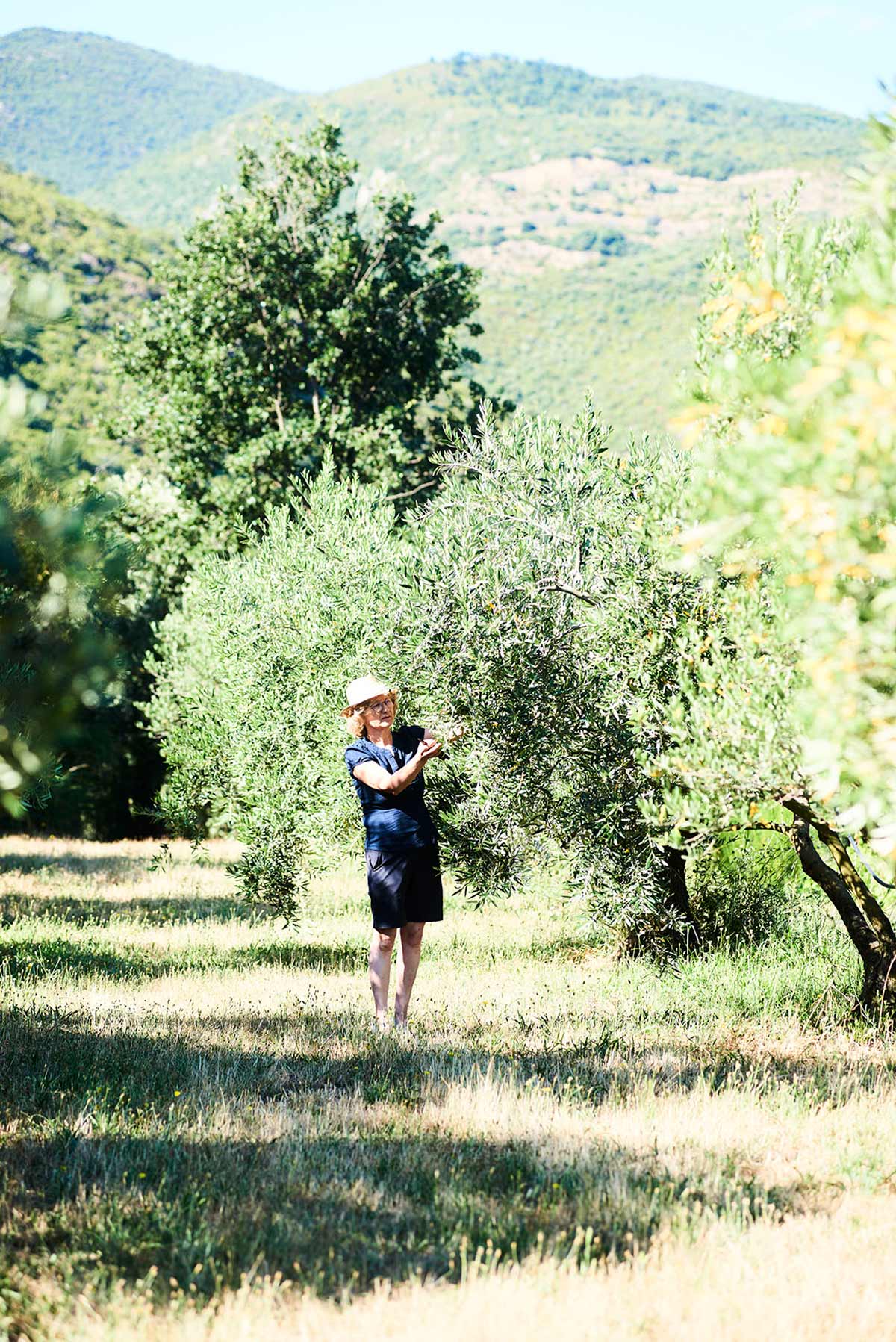
© ©LOUIS-LAURENT GRANDADAM
A long tradition of olive growing
When you think of olive oil, Provence springs to mind. It’s a region where olive trees can be seen far and wide, both on the coast of the Mediterranean and in the hinterland. But Provence doesn’t have a monopoly on olive oil production in France. The geography and climate are also very favorable in Languedoc and Roussillon, where it’s an age-old tradition. In the 1880s, before grape vines overgrew much of the land where olive trees had been planted, Roussillon was even the country’s largest olive-producing region. Nowadays, the region only accounts for a tiny fraction of the nation’s olive oil production, but local growers have decided to put it back on the map. The process to obtain an Appellation d’Origine Contrôlée for Roussillon olive oil has been underway since 2009, and its backers hope to achieve the status in 2023 or 2024.
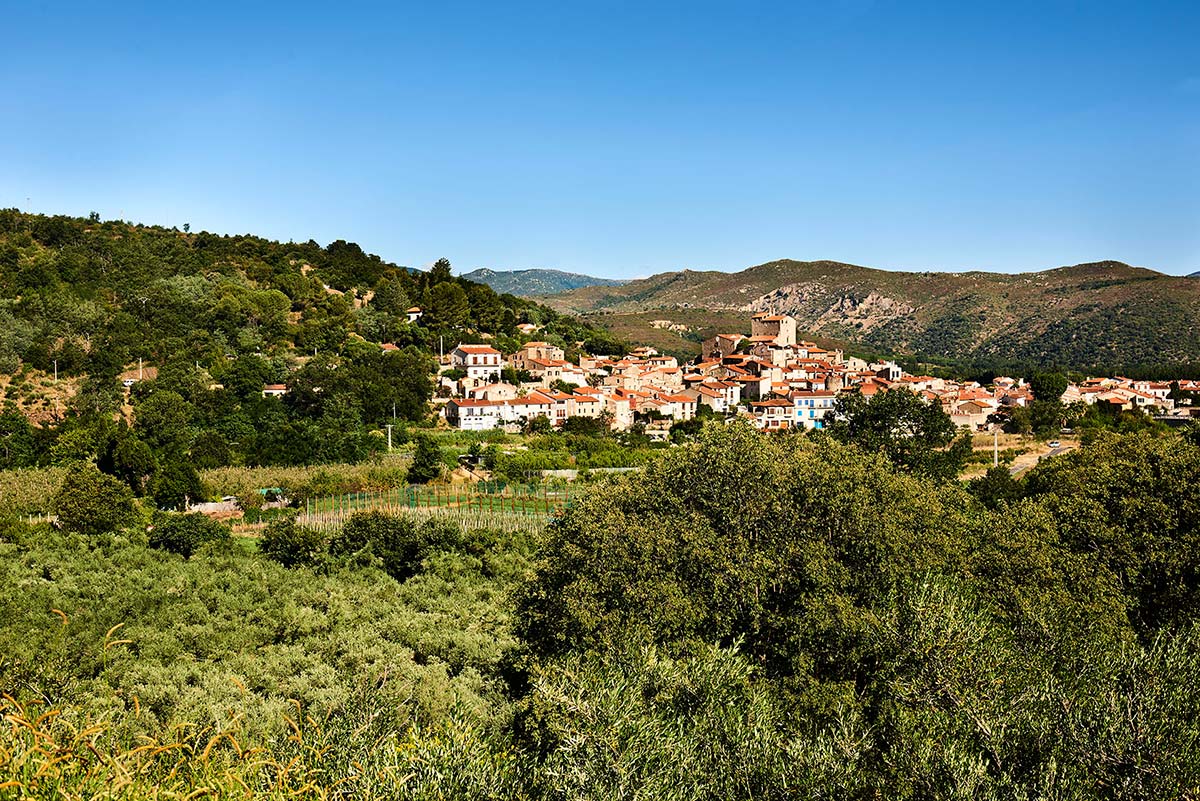
© ©LOUIS-LAURENT GRANDADAM
Cultivation and campaigning
Jacqueline Reig has been leading the charge since 2013 as the president of the group campaigning to secure the AOC. The very jovial Jacqueline lives with her husband Jean in Bouleternère, a village close to the foot of Le Canigou, the legendary summit of the eastern Pyrenees. Her husband’s family has lived there since the Middle Ages! They farmed olives for many years, until the deadly frost of 1956. When Jacqueline and Jean took over the farm, they first grew peaches and nectarines, before bringing back olive cultivation in 1996 on non-irrigated groves that date back three or four centuries. While the height of the trees and inability to use machinery make for difficult work, the fruit are remarkable. The olives are handpicked and pressed within 48 hours following cold extraction. Jacqueline and Jean care deeply about both quality and the environment, so they have removed the word “pesticide” from their vocabulary. The main varieties they grow are Lucques for table olives, along with Verdale, Olivière and Poumale.
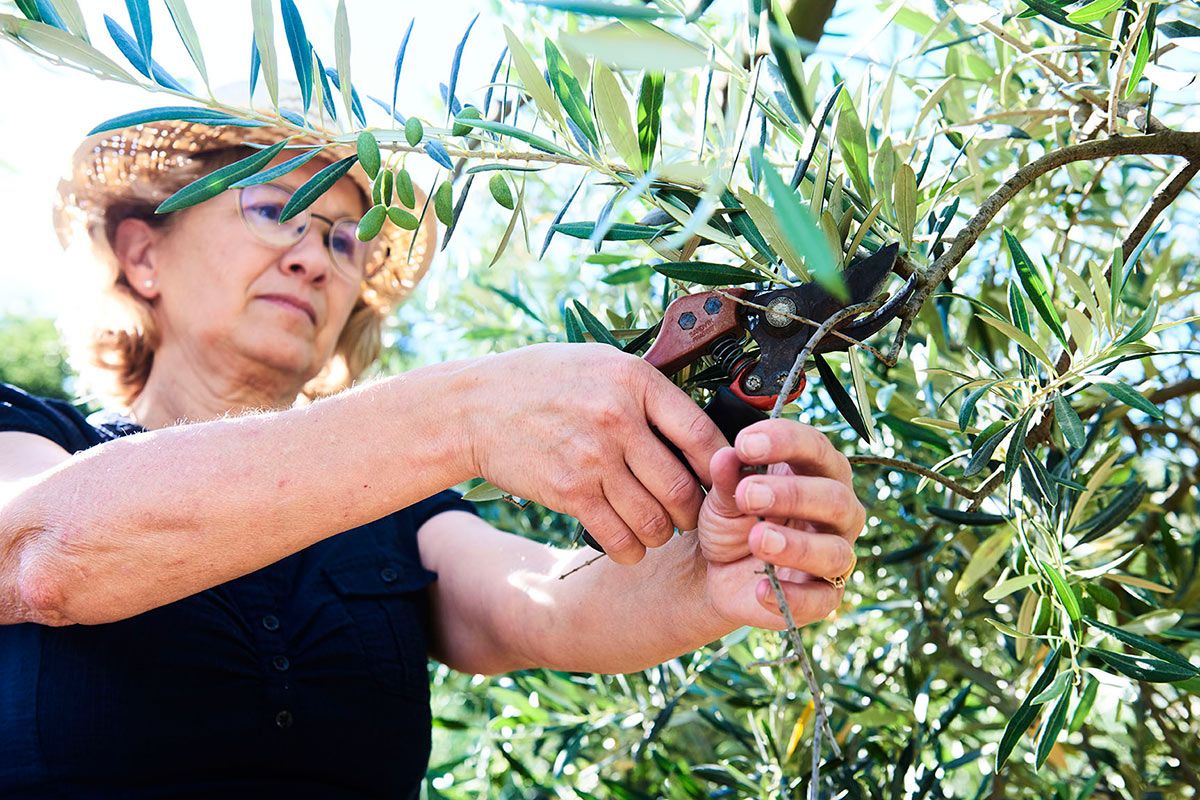
© ©LOUIS-LAURENT GRANDADAM
Smooth flavor
So how does Roussillon olive oil taste? “Each valley has its nuances,” explains Jacqueline. “But there are often notes of dried fruit, tomatoes, artichokes, and even red berries, in the ones made with the Courmeille variety. One of the distinctive aspects of Roussillon olive oils is their smooth flavor.” That comes through in the two utterly delicious Moulin des Auxelles olive oils, one produced entirely from Verdale olives, and the other, “Roca Fountane,” from a blend of Verdale, Olivière and Poumal. At Jacqueline and Jean’s little hideaway, a former oil mill nestled within the village’s medieval ramparts, you can also fill your basket with olivade spreads, a delightful pomegranate vinegar, a syrup made from the fruit, which is grown on site along with almonds and cherries. Jacqueline eschews flavored olive oils in favor of natural aromas. She does not like to heat them, either, preferring instead to drizzle oil onto fish and vegetable dishes after cooking. Her favorite pairings are with ceviche, strawberries and chocolate pastries. A mouthwatering proposition.
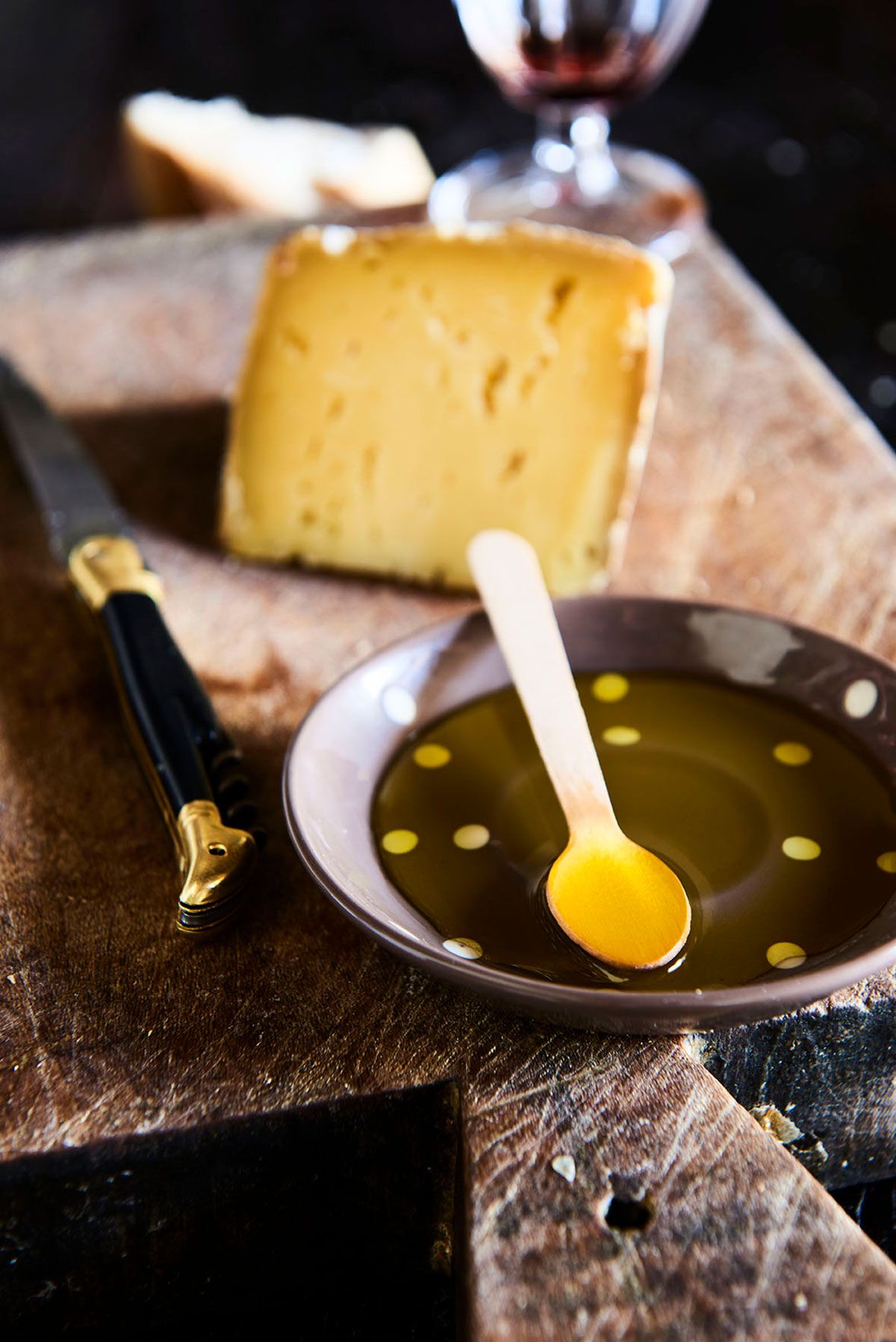
© ©LOUIS-LAURENT GRANDADAM
MOULIN DES AUXELLES
10 rue Arago
66130 Bouleternère
Téléphone : 0615860640
Contributor

Editor

